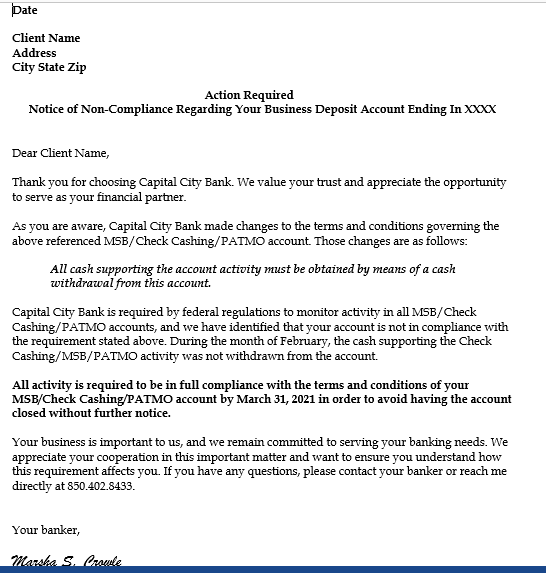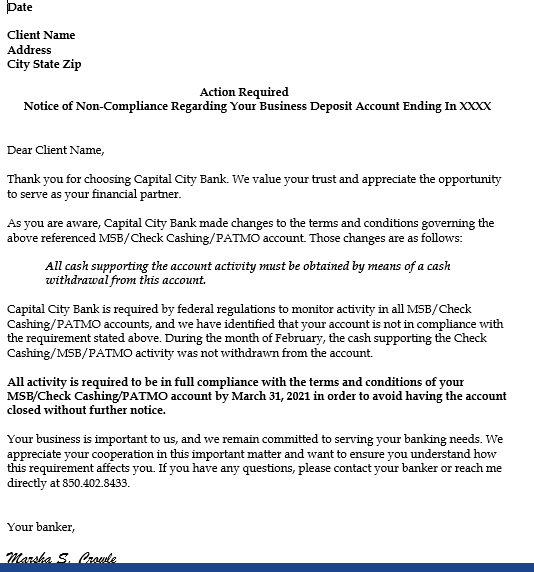Overview
Federal regulations require Capital City Bank to monitor activity in all Money Service Business (MSB), check cashing, and Privately Owned Automated Machine (PATMO) accounts. This monitoring is done by the Bank Secrecy Act (BSA) Department. Ninety (90) days after account opening, or after determining a client to be the provider of these services, the BSA Department reviews and analyzes the client’s activity to determine if the level of activity is considered reasonable.
On a quarterly basis, the BSA department compares the client's ATM activity to the anticipated activity provided on the Client Due Diligence (CDD) questionnaire. If the client's ATM account activity does not match the anticipated ATM activity during a review period, the BSA department reviews the client's activity for reasonableness.
BSA reviews the following:
Source And Use of Funds
- Cash coming into personal account - what is the source
- The volume, explanation, frequency, and structure of the cash
Types of Unusual Transactions
- Cash activity for a teacher, bus driver, unemployed individual
- Cash activity coming into Certified Public Accountant (CPA), legal firm, or similar business type
- Automated Clear Housing (ACH) credits coming from businesses to personal accounts
- Frequent wire activity from a personal account to other countries
- Cash in - transfer out pattern. Cash deposited and moved out of the bank quickly
- Transfer in - cash out pattern. Deposits that are moved out of the bank in cash quickly
If BSA determines the variance is reasonable, BSA updates the client’s behavior parameters to reflect the actual activity. If ATM account activity exceeds the reasonable bounds for the client, BSA contacts the manager of the office assigned to the account to ask the client to provide an explanation of the activity variances. BSA records the explanations in the client's Verafin record, and makes a determination of whether the variance is an isolated incident, or if the activity level is likely to change going forward.
Clients who refuse or fail to provide the requesting information are reviewed by the Suspicious Activity Report (SAR) Escalation and High-Risk Customer Working Group to determine the next course of action.
Each week, BSA emails a CDD-EDD Exception Report weekly to Retail Office Delivery management. The CDD-EDD Exception Report lists pending documentation and information requests submitted by BSA to office associates. Retail Office Delivery management coordinates with the applicable associates for timely clearing of exceptions. Email the requested documentation to _BSA Department with the subject line CDD-EDD Response.
Sample PATMO Notice of Non-compliance

Sample PATMO Notice Not in Full Compliance
